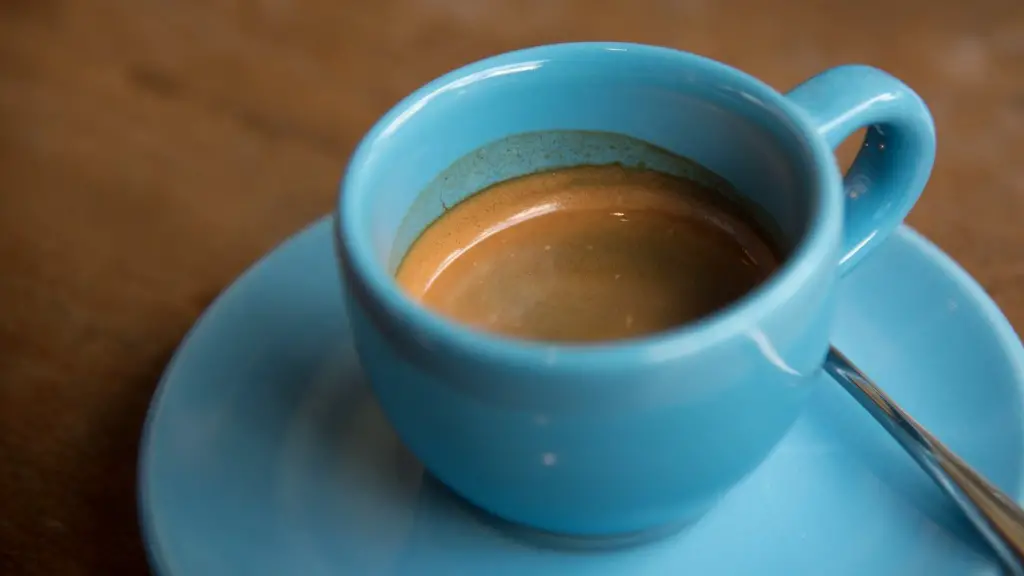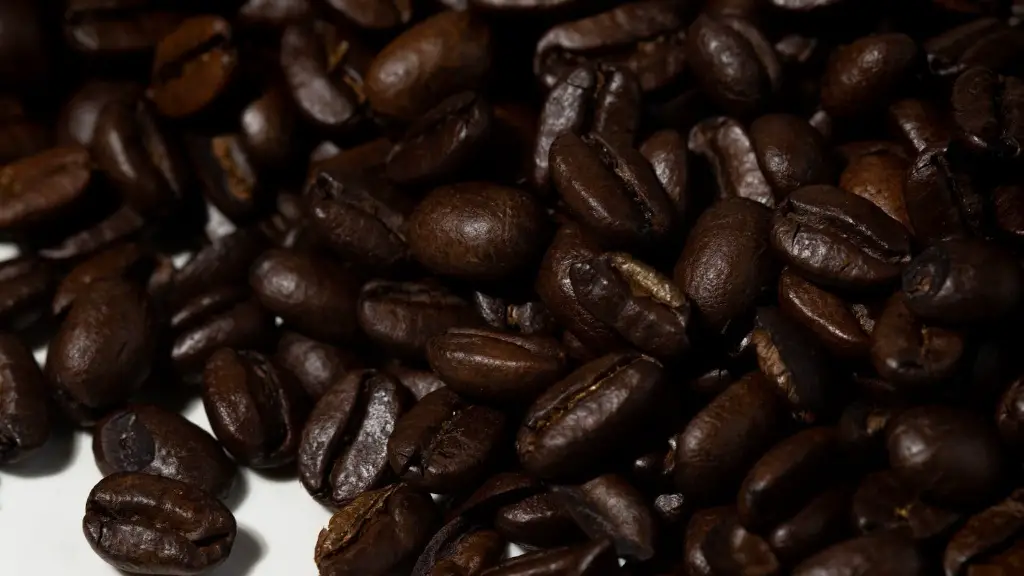It is often believed that coffee and fasting are mutually exclusive; however, there is a growing body of evidence to suggest that coffee and fasting can be consumed together. Despite this, it is still recommended that coffee consumption while fasting is restricted to a certain degree. This article will explore the pros and cons of drinking coffee while fasting, looks at the science relating to coffee consumption while fasting and offer advice on the best way to incorporate coffee into your fasting routine.
One of the benefits to drinking coffee while fasting is the temporary increase in metabolic rate. This can help to enhance our body’s ability to burn fat and provides a boost of energy, allowing us to stay alert and focused. However, it is important to be aware that our body can also become reliant on caffeine and regular consumption may lead to a degree of dependency. As such, it is recommended that coffee consumption is kept in moderation when fasting.
While drinking coffee during periods of fasting can help to increase our metabolic rate, there are certain drawbacks to consider. For instance, coffee can act as a diuretic and can leave us feeling more dehydrated than usual. This can cause headaches and can interfere with our ability to sleep and concentrate properly. Moreover, drinking coffee while fasting can also affect our blood sugar levels and can cause intrusive cravings. Due to this, it may be best to abstain from coffee until after meals.
The effects of coffee while fasting depend largely on the individual and the way in which they consume the beverage. In general, it is recommended that coffee is consumed in its purest black form and is kept to one or two cups per day. Adding milk or cream to coffee can slow down the benefits of fasting, so it is best to drink black coffee or a black americano. Alternatively, for those looking for an extra hit of energy, bulletproof or ketogenic coffee can be an excellent choice. Bulletproof coffee contains a blend of healthy fats and is low in sugar, allowing for sustained energy throughout the day.
Overall, there are a number of potential benefits to drinking coffee while fasting. However, it is important to assess individual tolerance and to also understand the potential drawbacks associated with the beverage. Ultimately, moderation is the key and it is best to find the balance between the benefits and drawbacks of consuming coffee while fasting.
Health Benefits
There are a variety of health benefits associated with drinking coffee while fasting. As previously mentioned, coffee can provide a temporary boost in metabolic rate; aiding our body’s ability to burn fat and to sustain energy throughout the day. Moreover, coffee may also help to reduce hunger levels and cravings. This is due to the stabilising effect that coffee can have on hunger hormones such as ghrelin and leptin, resulting in greater satisfaction after meals.
In terms of overall health, coffee can provide a number of antioxidants that are known to reduce inflammation in the body. Research has also shown that coffee can provide protection against certain diseases such as Alzheimer’s and Parkinson’s. Furthermore, experts believe that regular coffee consumption may also help to reduce the risk of certain cancers such as Liver cancer.
Religious Fasting
Religious fasting is becoming increasingly popular and many individuals restrict their food and beverage intake according to their faith. In terms of religious fasting, black coffee may be deemed an acceptable choice in moderation. However, it is important to note that there is no definitive answer and individuals should consult religious leaders for a formal ruling.
Expert Opinion
The debate as to whether or not one should drink coffee while fasting is a hot topic in the nutrition world. Experts generally agree that coffee can provide beneficial properties and may support the fasting process in some cases. However, there is also no denying that regular coffee consumption comes with some potential drawbacks. As such, it is recommended that individuals consider their own personal tolerance and consume coffee only in moderation.
Fitness expert and nutrition expert Dr. Kimberly Fowler highlights the importance of understanding our own reaction to coffee: “Your body’s response to coffee and other stimulants is uniquely yours. Knowing how you react and what you need is the most important factor in deciding whether coffee fits into your routine.” Fowler further outlines the importance of listening to the body and gradually introducing coffee in order to understand how it is impacting individuals on an individual basis.
How to Incorporate Coffee into a Fasting Routine
For those looking to include coffee as part of a fasting routine, it is important to consider the following tips in order to effectively incorporate the beverage in a healthy and sustainable way.
First and foremost, it is important to assess individual tolerance. As coffee can have a different effect on different people, it is important to note any reactions to the beverage and to take them into consideration when incorporating coffee into a fasting routine.
In addition, it is also important to remember to drink plenty of water during fasting in order to remain adequately hydrated. Coffee can act as a diuretic and can cause dehydration, so be sure to drink plenty of water throughout the day to counter this effect. Moreover, it is important to think carefully about the timing of coffee and to try to ensure that you never drink coffee on an empty stomach.
Finally, think carefully about the type of coffee consumed. As outlined above, black coffee is the best choice and it is best to abstain from drinks containing dairy, sugar or other additives. Alternatively, bulletproof or ketogenic coffee can provide an extra boost of energy without causing cravings.
Coffee Alternatives
Finally, for those looking for a coffee alternative, there are a variety of drinks that can provide the perfect pick me up during a fasting period.
Green tea is an excellent coffee alternative and is known to contain a variety of antioxidants that can reduce inflammation in the body. Matcha tea is a great choice for sustained energy and provides a longer lasting effect than regular green tea. Alternatively, yerba mate is becoming increasingly popular due its energising properties, its concentration of vitamins and minerals and its ability to reduce fatigue.
For those looking for an extra boost, adaptogen drinks are becoming increasingly popular. Adaptogens are natural substances that stimulate hormone regulation and energy production while simultaneously reducing stress and fatigue. Popular adaptogens include Ashwagandha, Ginseng and Reishi Mushroom.
Nutritional Benefits
Consuming coffee while fasting can provide a range of nutritional benefits depending on how the beverage is consumed.
Black coffee, for example, is very low in calories and can help to create a calorie deficit. Moreover, black coffee can provide a variety of antioxidants that are known to reduce inflammation in the body, as well as a number of other vitamins and minerals such as magnesium, potassium and zinc.
Meanwhile, bulletproof and ketogenic coffee can provide additional health benefits. Bulletproof coffee is known to contain a blend of healthy fats that can help to stabilise blood sugar levels and can also provide sustained energy throughout the day. Meanwhile, ketogenic coffee contains healthy fats and low levels of carbohydrates, making it an ideal choice for those looking to maintain a ketogenic diet.
Side Effects
Despite the potential benefits of drinking coffee while fasting, it is important to note the potential side effects associated with the beverage.
Coffee can act as a diuretic and can lead to dehydration, especially if consumed in large quantities. It is recommended that those who are fasting should drink plenty of water throughout the day to counter the effects of caffeine. Furthermore, coffee can also have negative effects on our sleep cycle and should be avoided late at night.
Coffee can also alter our blood sugar levels, often leading to intrusive cravings. This can be problematic for those following a fasting routine and it is recommended that coffee should be avoided until after meals. On the other hand, regular coffee consumption can lead to a degree of dependency and can cause headaches, shakiness and palpitations if withdrawal symptoms occur.
Summary
In summary, drinking coffee while fasting can offer a number of health benefits such as an increase in metabolic rate and the ability to reduce cravings. However, it is important to note the potential drawbacks to coffee consumption and to keep coffee consumption to a healthy level. Ultimately, it is important to listen to individual tolerance and to assess the effects of consuming coffee on an individual basis.





